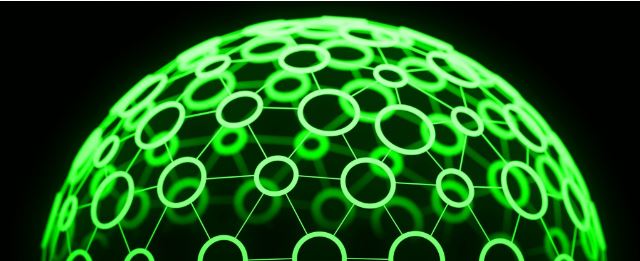


 4:39:50
4:39:50  2023-10-17
2023-10-17  1077
1077

Fiber-optic cables stretch across oceans and wind their way underground to handle our communications systems, and scientists think that this vast network of infrastructure could be put to another use: observing Earth's surface from below.
Specifically, the 1.2 million kilometers (more than 745,000 miles) of existing fiber-optic cable could be combined with satellites and other remote sensing instruments to monitor the entire globe in real time.
Storms and earthquakes could be tracked in this way, the team behind the idea suggests, as well as ships and whales passing through the seas. The network might even have the potential to be used to spot broken pipelines.
"This could be a game-changing global observatory for Ocean-Earth sciences," says geophysicist Martin Landrø, from the Norwegian University of Science and Technology (NTNU).
The monitoring would be done through the acoustic sensing capabilities of fiber-optic cables. Any flexes in the cabling caused by sound waves or actual waves can be picked up and interpreted to measure movement.
This was demonstrated by some of the same team last year through the tracking of whales across the Arctic. Across the course of 44 days in 2020, the scientists were able to detect more than 800 whale vocalizations through an underwater cable measuring 120 kilometers (75 miles). They also detected a big storm 13,000 kilometers (8,078 miles) away.
It's all made possible through a setup known as Distributed Acoustic Sensing (DAS) and a device called an interrogator. The interrogator sends a pulse of light down the fiber-optic cable, which then detects and precisely measures any flexing.
"So now we are able to use this to monitor and measure acoustic signals over distances up to 100 to 200 kilometers. So that's the new thing."
There are limitations: the results produced by the system contain a lot of noise, and that means it's more difficult to pick out signals than it is with, say, seismometers. This is where other sensing devices like satellites come in, to add extra context.
This is a technology that's constantly being upgraded too. Right now the DAS interrogators aren't able to 'see' past components inside the optic-fiber cables used to extend signals, but the researchers are working hard to overcome this limitation.
And the team is also eager to emphasize that its worldwide observation network would act as a complement to other systems, not a replacement. Because this cabling is so extensive, the potential number of findings could be huge.
"The DAS sensing and whale observation experiment shows a completely new use of this kind of fiber-optic infrastructure, resulting in excellent, unique science," says Landrø.
Reality Of Islam |
|

Labor short

A new ultra

Batteries p
 9:3:43
9:3:43
 2018-11-05
2018-11-05
10 benefits of Marriage in Islam
 7:5:22
7:5:22
 2019-04-08
2019-04-08
benefits of reciting surat yunus, hud &
 9:45:7
9:45:7
 2018-12-24
2018-12-24
advantages & disadvantages of divorce
 11:35:12
11:35:12
 2018-06-10
2018-06-10
 6:0:51
6:0:51
 2018-10-16
2018-10-16
 1:16:44
1:16:44
 2018-05-14
2018-05-14
 12:47:1
12:47:1
 2022-12-20
2022-12-20
 12:10:56
12:10:56
 2022-11-17
2022-11-17
 2:13:43
2:13:43
 2022-05-27
2022-05-27
 7:59:14
7:59:14
 2018-06-21
2018-06-21
 8:19:41
8:19:41
 2018-06-21
2018-06-21
 8:25:12
8:25:12
 2022-03-09
2022-03-09
 5:41:46
5:41:46
 2023-03-18
2023-03-18
| LATEST |